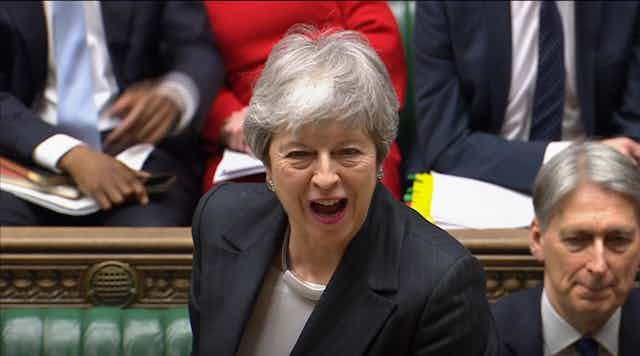Before the October 1964 general election, Harold Wilson was reported to have stated “a week is a long time in politics”.
Never has that maxim been truer than in relation to the politics of Brexit and the publication of prime minister Theresa May’s letter to Donald Tusk, president of the European Council, requesting an extension to the Article 50 period until June 30 2019.
Less than a week earlier, a day after MPs had for a second time rejected May’s European Union withdrawal deal by a thumping majority of 149, her own de facto deputy prime minister David Lidington had told the House of Commons that the government was opposed to seeking a short extension rather than a long one, stating::
In the absence of a deal, seeking such a short and, critically, one-off extension would be downright reckless and completely at odds with the position that this House adopted only last night, making a no-deal scenario far more, rather than less, likely. Not only that, but from everything we have heard from the EU, both in public and in private, it is a proposal it would not accept.
Less than a week later, without parliamentary support for her deal, May has sought that very short, one-off and “downright reckless” extension, which is completely at odds with the House of Commons’ position.
A number of important consequences are likely to follow on from May’s actions on what may become known as her “Reckless Wednesday”.
Her request for a short extension is, for a start, unlikely to be accepted by all 27 European Union member states without more concessions from the UK. Upon receiving May’s letter, Tusk said the extension would be possible if MPs approved her deal first.
The EU’s chief negotiator Michel Barnier had previously reiterated that the EU27 would only countenance such an extension if it received “a concrete plan from the UK” which increased the chances of ratification of the withdrawal agreement, or if the UK requested more time to rework the non-binding political declaration setting out the rough plan for the future relationship between the UK and EU.

May’s request letter has not set out a persuasive “concrete plan”. She cannot guarantee that any third meaningful vote on her EU Withdrawal deal will see her deal passed by MPs. She cannot even guarantee, at this stage, that a third vote will happen – given that the speaker of the House of Commons has warned that she cannot ask MPs to vote again on exactly the same proposal. In her letter, May merely states that it remains her intention to put the deal to the house for a third vote, without saying how that is to come about.
Nor has May requested more time to rework the political declaration. She has instead requested that the European Council approve the supplementary documents to the withdrawal agreement and political declaration agreed with Jean-Claude Juncker, the president of the European Commission – precisely the deal rejected by the House of Commons.
Was this a resignation letter?
What’s more, by ruling out a much longer extension, May has increased the odds of a no-deal Brexit. A longer extension might have enabled a clear plan to be implemented to enable cross-party support to be built for an alternative to her own withdrawal agreement. That seems unlikely in the shorter timeframe.
With that longer extension and threat to Brexit now explicitly ruled out by May, many of the hardcore of European Research Group Conservative MPs will feel that a further defeat for the government in any third vote will increase the likelihood of their preferred no-deal scenario. It will also have the bonus effect of ridding the Conservative Party of a leader and prime minister they have openly opposed, but failed to unseat in last December’s vote of no confidence.
In effect, May has set out the timetable and personal terms for her own resignation and departure as prime minister. If, as seems probable, the House of Commons rejects her EU withdrawal deal for an historic third (and likely final) time – so that Tusk cannot agree to a short extension – and then votes to seek an extension from the European Union beyond June 30, in order to allow sufficient time to negotiate an alternative Brexit or to hold a general election or further referendum, May will have little choice but to resign.
In the foreword to her party’s 2017 election manifesto, May stated: “Brexit will define us: our place in the world, our economic security and our future prosperity.”
Rarely were truer words spoken. Brexit has defined May’s premiership. It has been a shambles from first to last. It has put at risk the UK’s place in the world, and compromised its economic security and future prosperity. It was for precisely those reasons that, on April 25 2016, May herself had advocated the UK remaining in the EU.
Article 50 was triggered by May without a concrete plan for its delivery which could command the support of her own MPs, let alone a majority of the House of Commons. Now, on her own “Reckless Wednesday”, May has sought an extension to Article 50, again without a concrete plan which can command the support of her own party or the House of Commons. By her own hand, May has written her own political obituary as prime minister.

